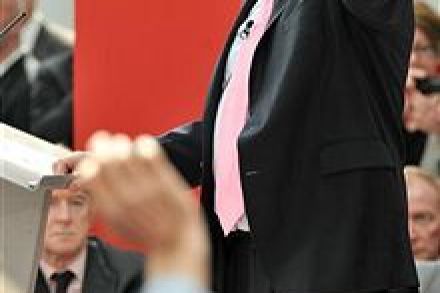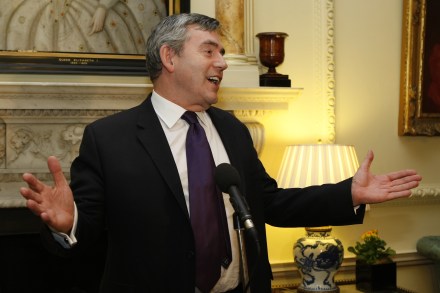Advantage Cameron | 15 April 2010
I’ve just been watching the feed coming out of the studio where the debate is taking place and what struck me was how much of an advantage his central position will give David Cameron. In all the shots of the studio, the middle lectern is where your eye is drawn first. The leaders, I’m told, have all had half an hour in there to familiarise themselves with the surroundings. They now appear to be white-washing parts of the studio.
















